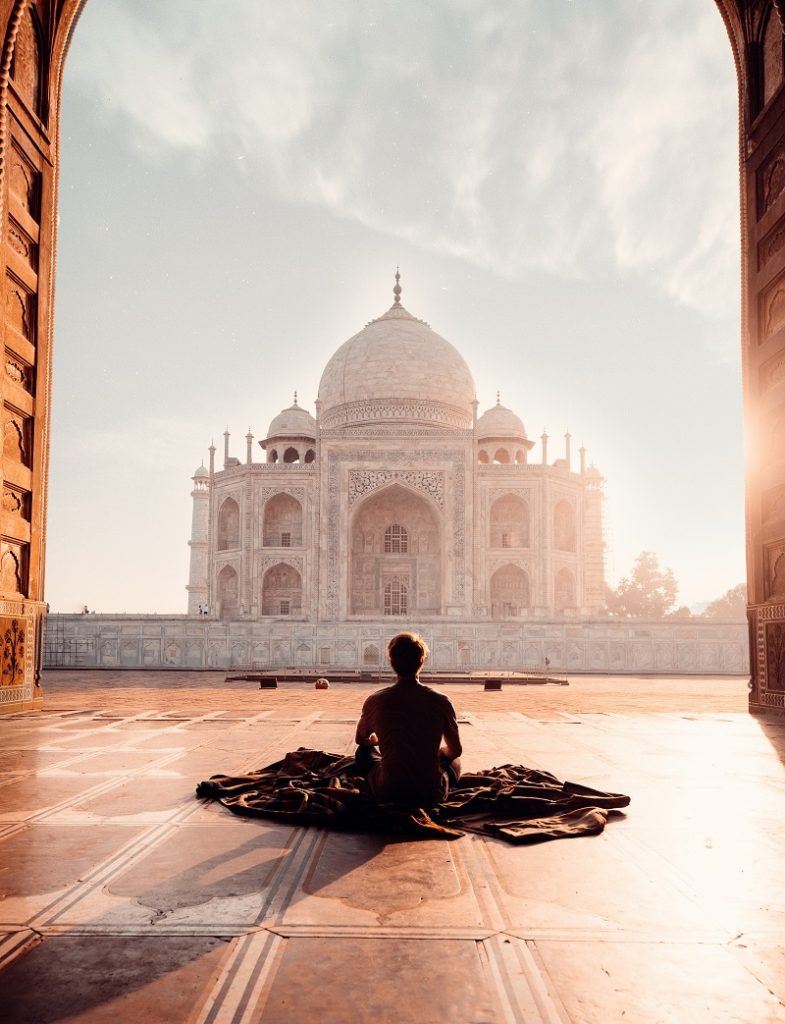By Edward Stanton
Some have criticized President Trump’s 36-hour breeze through India this week, arguing that the visit was designed to bolster his own image and that of Prime Minister Modi more than improve ties between the world’s largest and oldest democracies. “This is no celebration of democracy,” Rana Ayyub said about the two leaders in the Washington Post. “This is a celebration of selfish ambition.”
Others have been angered by the expense: according to officials, the president’s three-hour initial stop in Ahmenadab alone amounted to $13 million; there’s no telling what the remaining 33 hours may have cost. The BBC remarked that Trump finally “got his wall”—not the one along the Rio Grande but the one hastily built by the Indian government to conceal slums near the airport. Some commentators professed outrage that Trump, who allowed the separation of more than 2,500 infants and children from their parents at the U.S.-Mexican border, who encouraged his supporters to attack journalists and other perceived enemies, and who has uttered more than 16,000 false or misleading claims since taking office (The Hill), began his stay in India by visiting the ashram of Mahatma Gandhi, the apostle of nonviolence, humility and satyagraha or “holding firmly to truth.”
In New Delhi journalists noted the dissonance between the chummy reception for the two leaders, held in the regal Rashtrapati Bhavan presidential palace, and the battles in the streets, where Hindus and Muslims clashed in the worst communal violence seen there in decades, provoked by Modi’s discriminatory citizenship law. Locals laughed when Trump mangled the names of Ahmedabad, the city where he spoke first, and of the famous cricketer, Sachin Tendulkar. Afterwards he called the sacred Vedas, the ancient Hindu texts, the “Vestas.” Fortunately he did not call them Vespas in a country that has millions of scooters.
But not all Indians have criticized Trump’s tour. Some expressed the wish that the brief stop in Gandhi’s modest house, where Mr. and Mrs. Trump tried their hands at the charkha or traditional spinning wheel, would teach them the dignity of manual labor. Hindu scholars hoped the president might eventually learn to pronounce the title of the Vedas correctly, perhaps even read its hallowed pages—summarized in bullet points of course. Indian Muslims had no comment.
A holy man hired by the Trump team in Delhi, Art-inanda Uvade Deal-ananda, predicted that the flash pilgrimage to Mother India could deepen Trump’s spiritual life. Might it accomplish what pundits had desired since 2016, finally making him presidential and worthy of the highest office in the land? As a sign of humility, the swami continued, the American leader could change his last name back to its original German form—Drumpf—since “Trump” sounds too pompous, suggesting “blaring trumpets, tawdry trumpery, aggressive moves in card games and trumped-up facts.” Deal-ananda promised, “I shall bless him with the honorary title of Mahatma Drumpf. Then I shall ask him to remove his Armani suit and change into a lungi, a wrap-around robe in the style of our leader Narendra Modi.”
When critics objected that there are few Indians as obese as Trump, the yogi responded that he would order a custom-made robe made by the finest tailor in Delhi, who would hem the garment with spun gold. If that was not enough, he would have the president bedecked in a dhoti, tucked between the legs and tied to the waist in back.
“Why not a loincloth?” asked an extremist Hindu, “like Gandhi’s.” “Whatever,” Deal-ananda replied. “I shall escort Mahatma Drumpf to the banks of the holy Benares. There he will purify his sins in the sacred waters and we will draw great crowds of worshipers.” When reminded that Trump is a germaphobe, the swami assured the press that his team would pitch a hermetically-sealed tent on a ghat by the river, where a team of medical experts could disinfect the presidential person after his ablutions.
Sceptics wondered if Mahatma Drumpf would revert to his old ways when he returned to Washington. Deal-ananda silenced these voices, foretelling that the president would devote himself to the meditative life. “Mahatma shall place a set of the Three Monkeys in Lincoln’s bedroom at the White House, and vow not to see, hear or speak more evil.” Mahatma Drumpf would also transform the Oval Office into a hot yoga studio and install a group of fakirs in the unused Press Room. Finally, in an effort to establish gender balance he would replace the portraits of Jimmy Carter and Bill Clinton with photos of Pandit Nehru and Mother Teresa.
Once he had ended his political career—Swami did not specify when—the Mahatma would walk barefoot to Mar-a-Lago, where he would expel the current residents and convert it into a holy site. “The fame of Ashram Drumpf will spread,” the yogi prophesied. “We will build so many that they will cover the world.” In an unfortunate comparison, he closed by saying, “like mushrooms sprouting from the base of a rotten tree.”
Edward Stanton is the author of twelve books, and of articles and essays in newspapers and journals throughout the world.

